CUSTOMER SERVICE: +44 (0)3300 535899 // customercare@plumb2u.com
- Bathroom
- Showering
- Mixer Showers
- Power Showers
- Digital Showers
- Electric Showers
- Smart Showers
- Shower Valves
- Shower & Bath Wastes
- Shower Accessories
- Shower Spares
- Baths
- Bathroom Furniture
- Mirrors
- Bathroom Mirrors
- Mirror Cabinets
- Basins
- Bathroom Taps
- Basin Mixer Taps
- Tall Basin Mixer Taps
- Basin Pillar Taps
- Basin Monoblock Taps
- Bath Filler Mixer Taps
- Bath Shower Mixer Taps
- Bath Pillar Taps
- Bath Spout
- Bidet Taps
- Basin Wastes
- Tap Spares
- Assisted Living
- Grab Rails
- Support Rails
- Shower Seats
- Toilets
- Back to Wall Toilets
- Close Coupled Toilet
- Rimless Toilets
- Wall Hung Toilets
- Concealed Cisterns and Buttons
- WC Frames and Flush Plates
- Toilet Seats
- Toilet Seat Spares
- Cistern Levers
- Urinal Controls
- Wet Room
- Shower Trays
- Shower Doors
- Bathscreens
- Waterproofing
- Pumps
- Shower Pumps
- Water Booster Pumps
- Accumulator Tanks
- Surface Pumps
- Submersible Pumps
- Lifting Stations
- Water Tanks
- Pump Accessories
- Macerators
- Accessories
- Towel Rings and Hangers
- Toilet Roll Holders
- Soap Accessories
- Toilet Brush
- Tumbler
- Bathroom Cleaning Chemicals
- Heating
- Boilers
- Electric Boilers
- Gas Boilers
- Flues and Accessories
- Boiler Spares
- Hot Water Cylinders
- Unvented Cylinders
- Vented Cylinders
- Heat Pump Cylinders
- Heat Pumps
- Heat Pump Accessories
- Filters & Water Treatments
- Powerflushing
- Boiler Filters
- Boiler Filter Spares
- Central Heating Chemicals
- Compression & Push Fit Scale Reducers
- Water Health Check
- Central Heating Pumps
- Heating Controls
- Wireless (RF) Programmable Thermostats
- Hard-Wired Programmable Thermostats
- Digital Thermostats
- Analogue Thermostats
- Programmers & Time Switches
- Immersion Heater Controllers
- Frost Thermostats
- Smart Heating Controls
- Underfloor Heating Controls
- Cylinder & Pipe Thermostats
- Boiler Controls
- Motorised Valves
- Heating Controls
- Thermostatic Rad Valves
- Manual Rad Valves
- PRV & Auto By-Pass Valves
- Wiring Centres
- Radiator Controller
- Heating Control Packs
- Heating Accessories
- Underfloor Heating
- Underfloor Heating Controls
- Underfloor Heating Pipes and Fittings
- Underfloor Heating Panels and Fittings
- Manifolds & Accessories
- Underfloor Heating Packs
- Underfloor Heating Accessories
- Radiators & Towel Rails
- Heating Radiators
- Column Radiators
- Flat Panel Radiators
- Heated Towel Rails
- Vertical Radiators
- Heating Panels
- Fires & Stoves
- Electric Fires
- Gas Fires
- Stoves
- Fire Surrounds
- Electric Water Heaters
- Boiling Water Dispensers
- Instantaneous Water Heaters
- Unvented Water Heaters
- Vented Water Heaters
- Point of Use Water Heaters
- Water Heater Accessories
- Featured Brand:
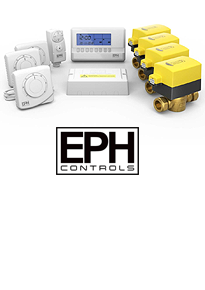
- Boilers
- Gas Boilers
- Gas Combi Boilers
- Gas Regular Boilers
- Gas System Boilers
- Electric Boilers
- Electric Combi Boilers
- Electric Regular Boilers
- Electric System Boilers
- All in One Electric Boilers
- Boilers by Brand
- Strom
- Trianco
- Vaillant
- Viessmann
- Worcester Bosch
- Boiler Flues and Accessories
- Boiler Controls
- Flues
- Boiler Filters
- Boiler Packs
- Boiler Spares
- Featured Brand:
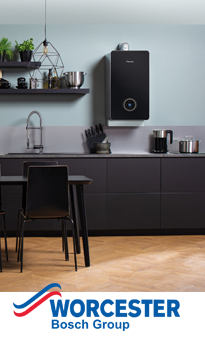
- Cylinders
- Hot Water Cylinders
- Unvented Cylinders
- Vented Cylinders
- Heat Pump Cylinders
- Tundishes
- Cylinders by Brand
- Gledhill
- Joule
- RM Cylinders
- Featured Brand:
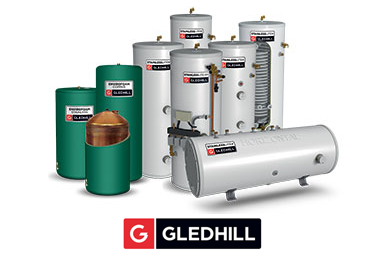
- Kitchen
- Kitchen Taps
- Kitchen Mixer Taps
- Kitchen Pillar Taps
- Wall Mounted Taps
- Pull Out Kitchen Taps
- Cold Water Filter
- Kitchen Wastes
- Boiling Water Units
- Boiling Water Taps
- Boiling Water Tanks
- Boiling Water Filters
- Waste Disposers
- Waste Disposers
- Waste Disposer Accessories
- Water Softeners
- Electric Water Softeners
- Non Electric Water Softeners
- Salt
- Water Softener Accessories
- Electric Water Heaters
- Instantaneous Water Heaters
- Unvented Water Heaters
- Kitchen Sinks
- Ceramic
- Granite
- Stainless Steel
- Kitchen Cleaning Chemicals
- Featured Brand:
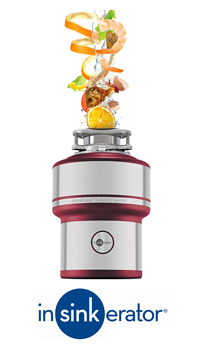
- Plumbing
- Toilet Replacement Parts
- Toilet Seats
- Toilet Seat Spares
- WC Flush Plates
- Cistern Levers
- Flush Buttons
- Air Buttons
- Filling Valves
- Flushing Valves
- Syphons
- Cistern Spares
- Washers
- Filters
- Plumbing Fittings
- Flexible Hoses
- Hose Fittings
- Gas Hoses
- Cistermiser Spares
- Pipe Clips
- Plumbing Consumables
- Adhesives
- Aerosols
- Fluxes & Jointing Compound
- Leak Detector
- Pipe Freezing
- Pipe Repair
- Removers
- Sealants
- Silicone
- Wastes
- Basin Wastes
- Bath & Shower Wastes
- Kitchen Wastes
- Traps
- Basin Traps
- Bath & Shower Traps
- Kitchen Traps
- Plastic Pipes and Fittings
- Plastic Pipes
- Plastic Fittings
- Waste pipes and fittings
- Waste Pipes
- Waste Fittings
- MDPE Pipe & Fittings
- MDPE Pipes
- MDPE Fittings
- Soil Pipes and Fittings
- Soil Pipes
- Soil Fittings
- Press Pipes and Fittings
- Press Pipes
- Press Fittings
- Underfloor Pipes and Fittings
- Underfloor Pipes
- Underfloor Fittings
- Guttering
- Half Round Gutter
- Guttering Fittings
- Round Downpipe
- Downpipe Fittings
- Valves
- Thermostatic Mixing Valves
- Thermostatic Radiator Valves
- Compression Ball Valves
- PRV & Auto By-Pass Valves
- Isolation Valves
- Pan Connectors
- Carbon Monoxide (CO) and Smoke Alarms
- Tools
- Hand Tools
- Wrenches
- Spanners & Socket Sets
- Electrical Tools
- Screwdrivers
- Manometer / U Gauge
- Clamp Tools
- Markers
- Pipe Bending and Soldering
- Blow Torches and Spares
- Multibender
- Drilling
- Cutting Tools
- Copper Pipe Cutters
- Hacksaws
- Plastic Pipe Cutters
- Pliers and Cutters
- Maintenance Tools and Storage
- Drain Cleaning
- Access Panels
- Dust Sheets and Mats
- Lanterns & Worklights
- Pipe Freezing Kits
- Pipe Pressing Tools, Jointers & Expanders
- Press Tools
- Testing Equipment
- Tool Bags
- Tool Kits
- Diamond Tools
- Diamond Blades
- Diamond Core Drills
- Diamond Tile Drills
- Diamond Tools Accessories
- Fixings
- PPE and Health and Safety
- Cleaning Chemicals
- Bathroom Cleaning
- Floor Cleaning
- Garage Cleaning
- Kitchen Cleaning
- Laundry Room Cleaning
- Living Room Cleaning
- Outdoor Cleaning
- Testing Equipment
- Flue Gas Analyser
- Smart Flue Gas Analyser
- Leakage Testing
- Pressure Testing
- Inspection System
- Smart Probes
- Electrical Measurement
- Thermal Imaging Camera
- Temperature Measurement
- FEATURED BRAND:
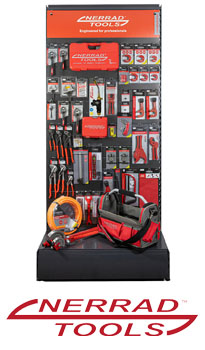
- Brands
- A-B
- Abacus
- Adey
- Aladdin
- Alpha Press
- Aqualisa
- Ariston
- Arctic Hayes
- Artline
- ATAG
- Banico
- Bathex
- Be Modern
- Bellseal
- Bemis
- Big Wipes
- BoilerMag
- B-D
- Bristan
- Buteline
- BWT
- Calmag
- Cistermiser
- C.K Tools
- Classi
- Clipacore
- Condensate Pro
- Croydex
- CT1
- DAB Pumps
- Davant
- Daikin
- Diversitech
- DQ Heating
- Drayton
- Duravit
- E-H
- Ecozone
- EHC
- EPH Controls
- ESI Controls
- Everbuild
- Everflux
- Fernox
- FlowPro
- Fluidmaster
- Francis Pegler
- Gainsborough
- Geberit
- Gledhill
- Great Water
- Gripit
- Grohe
- Grundfos
- hansgrohe
- Heatmiser
- H-L
- Henrad
- Heritage
- HG
- Honeywell Home
- Hotun
- Hyco
- Ideal
- Ideal Standard
- InSinkErator
- Inta
- Inventive Creation
- JG Speedfit
- Joule
- Kaldewei
- Kamco
- Kibosh
- Kidde
- Knipex
- Liff
- M-P
- Maincor
- Mark Vitow
- McAlpine
- Merlyn
- Methven
- Mexco
- Monarch
- Monument Tools
- Navigator
- Nerrad Tools
- Nest
- Newland
- Novopress
- Pegler
- Pit Bull
- Plumb2u
- Plumbing Parts
- Polypipe
- Primary Pro
- R-T
- Reginox
- RM Cylinders
- Roca
- Rothenberger
- Salamander Pumps
- Salus
- Saniflo
- Scalemaster
- Secure Meters UK
- Sentinel
- SIAMP
- Stopcor
- Strom
- Stuart Turner
- Tapworks
- Testo
- Thomas Dudley
- T-Z
- Top Fix
- Torbeck Opella
- TotalHome
- Triton
- Trianco
- Tweetop
- Twyford
- Vado
- Vaillant
- Viessmann
- Villeroy & Boch
- Viva
- Vogue UK
- Waste Maid
- Wirquin
- Wöhler
- Worcester Bosch
- Zilmet
- Clearance
- Contact
- Plumb2u
- Shopping with us
- Main Categories & Products
- Contact Us
- Home
- My account
- Wireless Room Thermostats
- Get in touch
- About us
- Shipping Options
- Filling Valves

- Privacy Policy
- Offers and Coupons
- Flushing Valves
- Return Policy
- Plumb2u FAQs
- Payment Methods
- Salus Thermostats
- Brands contact details
- Sitemap
- Click and Collect Stores
- Honeywell Home
- Blog
- Terms & Conditions
Plumb2u © 2026 - Plumbing and Heating Supply
